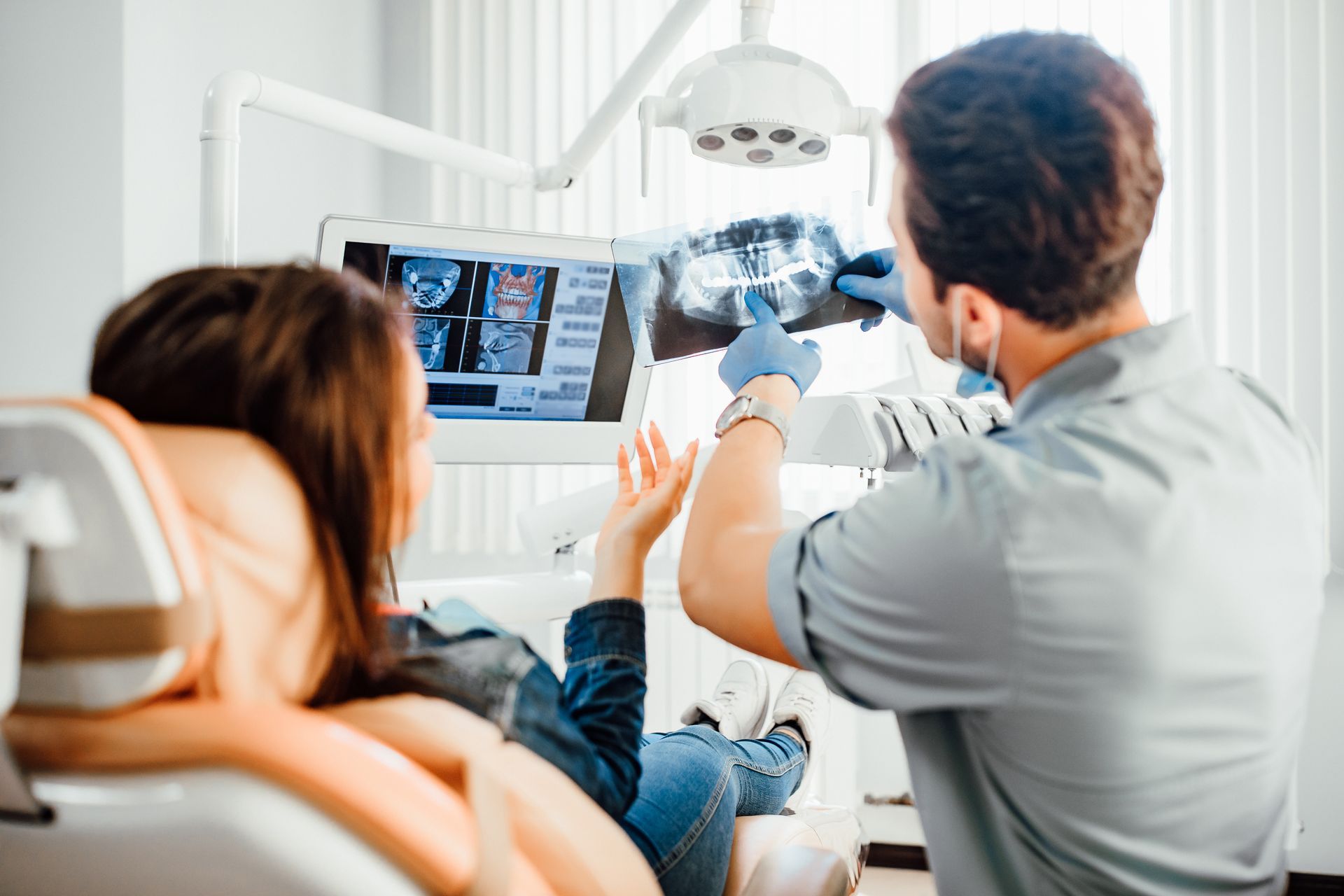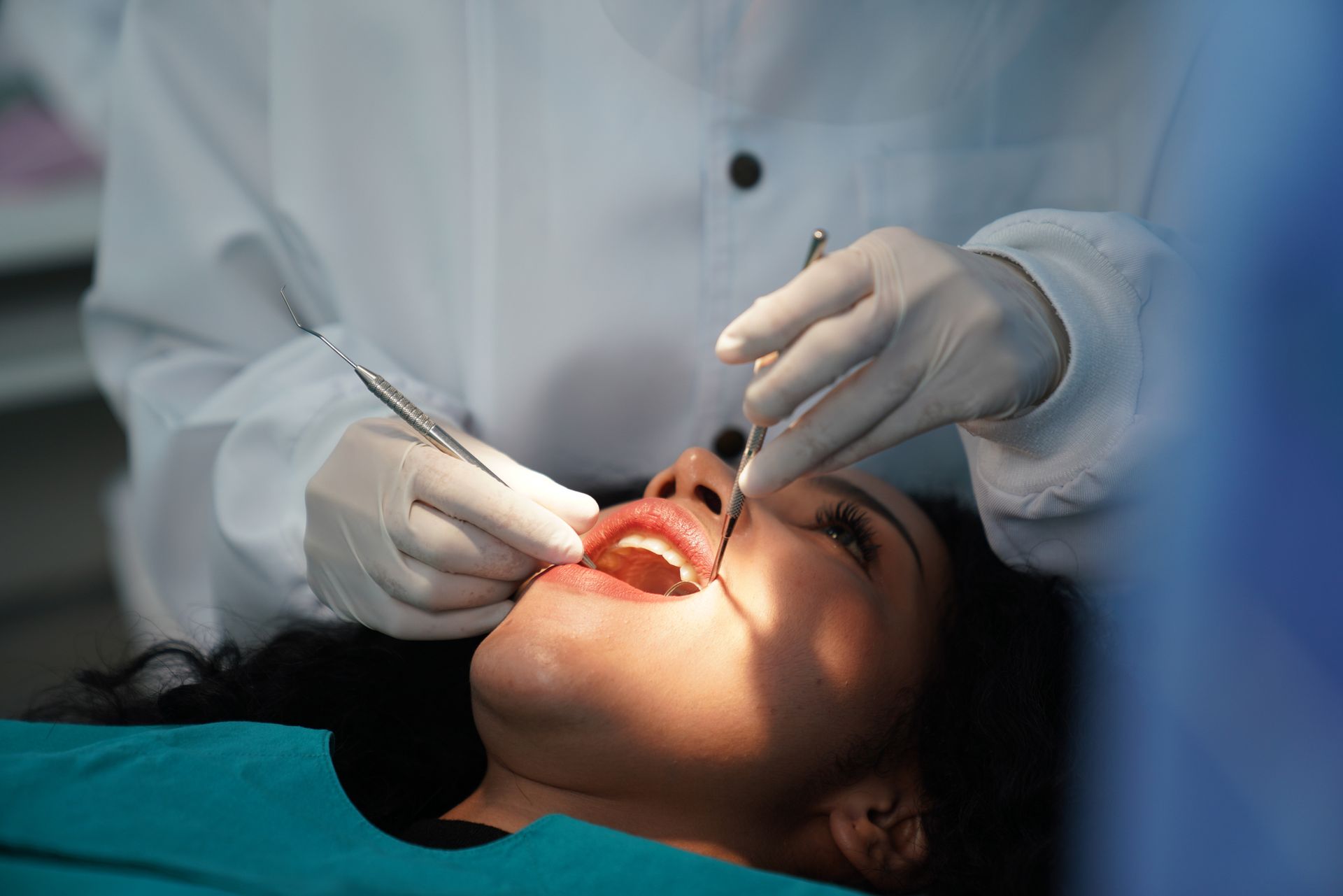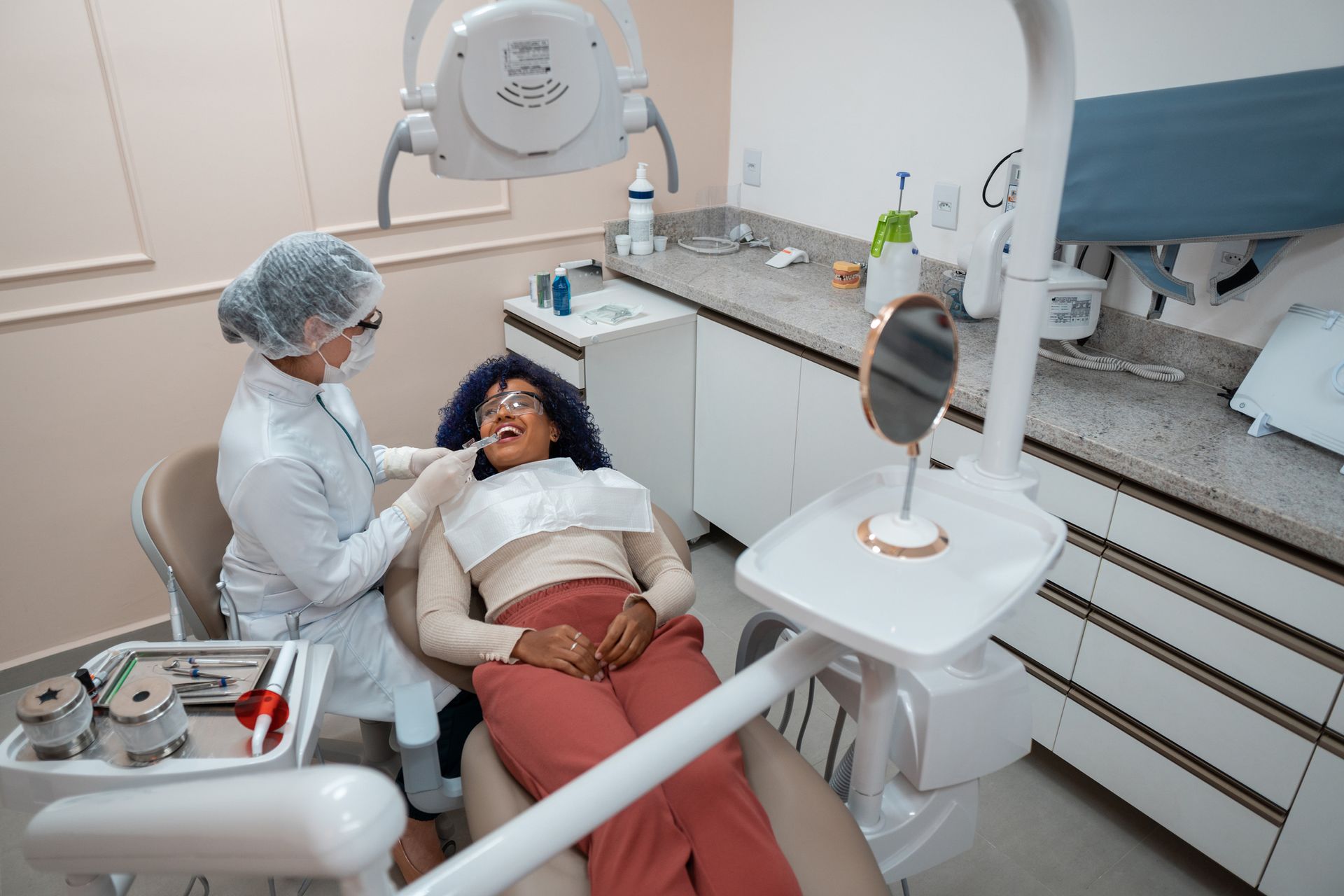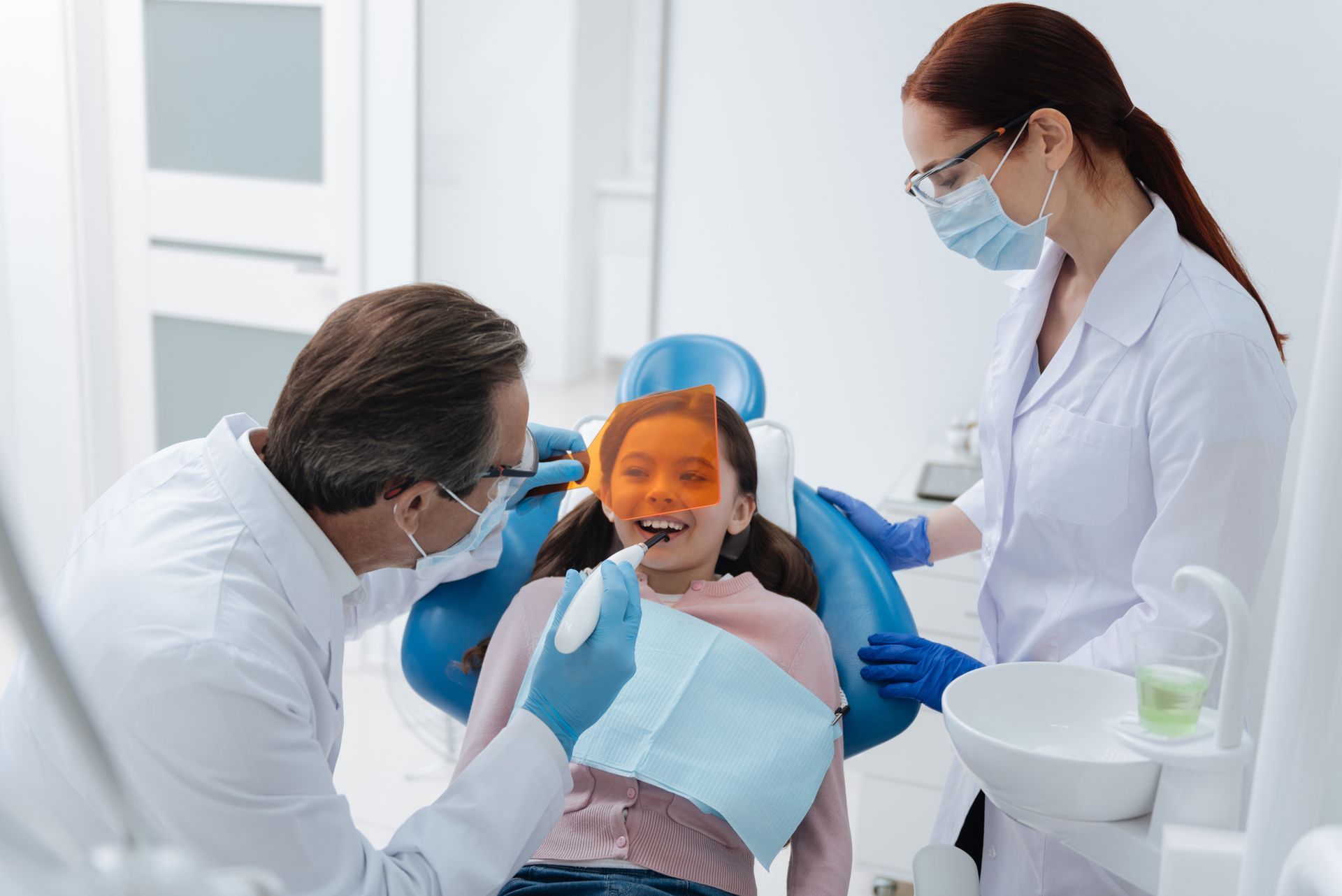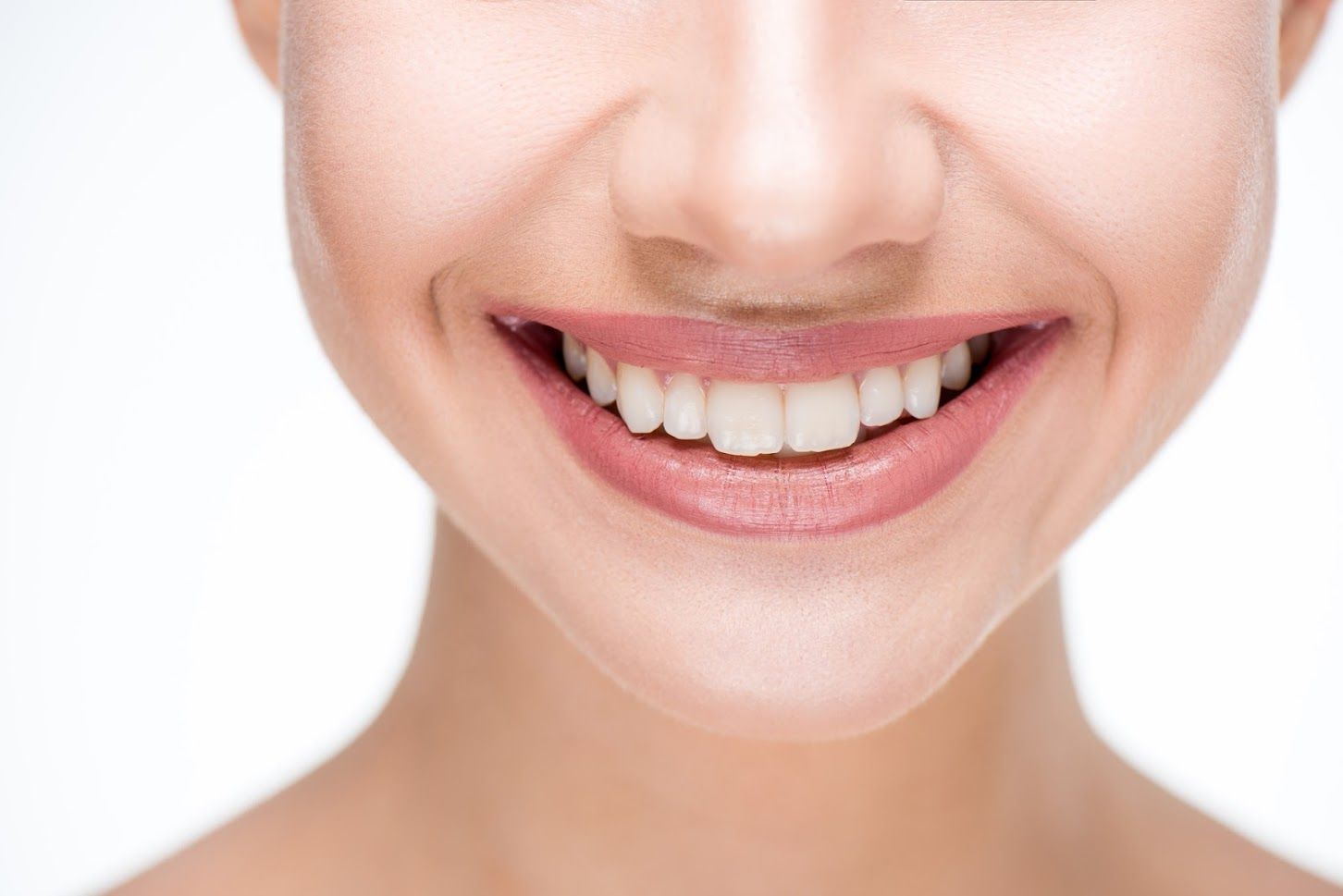Tooth Discoloration: Causes, Types, and Treatment
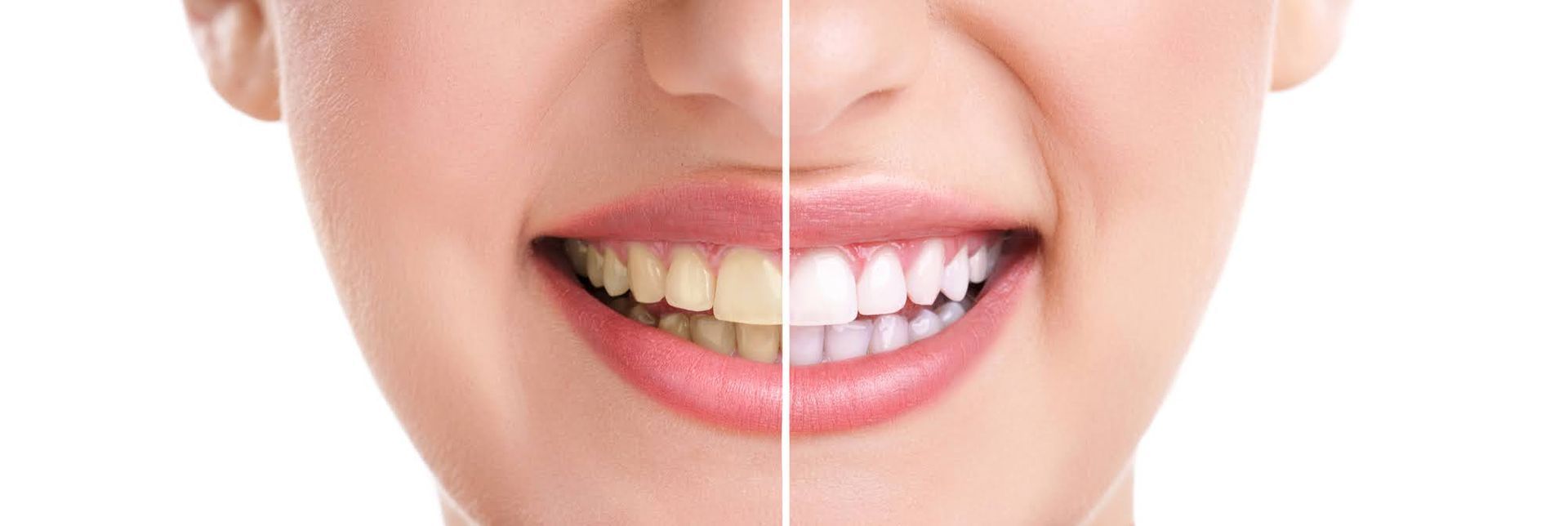
Have you noticed your teeth are no longer as white as they once were? Several things can make your teeth discolored and stained. Fortunately, you can take many steps to prevent and treat tooth discoloration. Read on to discover what you need to know about teeth discoloration.
Causes of Tooth Discoloration
The following factors can cause tooth discoloration.
Diseases
Most of the conditions that affect the tooth's surface (enamel and dentin) cause tooth discoloration. Your teeth can also become discolored if you receive treatment for specific conditions. For instance, chemotherapy and radiation may lead to tooth discoloration.
Medications
Doxycycline and tetracycline are antibiotics that may cause stains on the developing teeth of young children. Teeth discoloration can also occur if certain mouthwashes and rinses come into contact with the teeth. For example, cetylpyridinium chloride and chlorhexidine can cause teeth staining. Other common causes of teeth discoloration include high blood pressure treatment, antipsychotic drugs, and antihistamines.
Trauma
Accidents can cause mouth injuries in children whose teeth are still developing. The injuries prevent proper enamel development, causing tooth discoloration. Adults can also get injuries that interfere with blood flow to the teeth. As a result, the nerves will become inactive and cause tooth discoloration.
Drink and Food
Red wine, dark sodas, tea, and coffee can cause teeth to become discolored. Even some vegetables and fruits may also lead to discolored teeth.
Home Care
Failure to frequently brush or floss your teeth can cause tooth discoloration because plaque builds up on the surface of your teeth and hardens into tartar.
Environment
Excessive fluoride in the mouth can prevent proper tooth formation and cause discoloration. For example, you may drink water with high fluoride levels. Fluorosis is a condition where white spots appear on your teeth. Levels have to be high to cause this.
Types of Teeth Staining
Tooth discoloration can be age-related, intrinsic, or extrinsic. Age-related discoloration is where the enamel wears away as you become older. The wearing away of the naturally white enamel causes the inner yellow layer to become exposed. Intrinsic and extrinsic discoloration can also contribute to and accelerate age-related discoloration.
Intrinsic discoloration refers to stains inside the tooth that reduce the effectiveness of some tooth-whitening products. Stains usually have a grey color and may be a sign of tooth decay or excessive use of certain medications. Your genetics can also cause intrinsic tooth discoloration. Intrinsic tooth stains are harder to get rid of, and a professional may have to bleach your teeth or use whitening products to remove the discoloration.
Extrinsic tooth discoloration refers to external factors that affect the outermost layer of your teeth. The stains happen when particles like residue from drink or food build up on the enamel of your teeth. Common culprits include tobacco, beverages, and food. Adequate dental hygiene, like regular brushing, can effectively get rid of extrinsic stains.
Treatment
If the discoloration is minor, some teeth whitening methods can help. You can try other dental procedures, such as dental bonding and veneers, to remove discoloration. Your dentist can also put dental crowns on top of the discolored tooth to improve your smile. Remember, the best cure is to avoid the factors that lead to tooth discoloration.
Tooth discoloration is a sign of underlying dental problems and can make your smile unattractive. Airport Road Dental Associates, PC provides dental services to prevent and treat tooth discoloration. We also offer general dentistry services, such as tooth cleanings and check-ups. Contact us to book an appointment.

